Today, the first official release of MangoHud went out, a new open source Vulkan overlay layer for gaming on Linux. This enables you to get a HUD on your games with fancy details like FPS and Frame Timings, GPU and CPU utilization, GPU and CPU temperature reporting and more.
Originally a fork of the Mesa drivers "with the overlay files modified to produce the hud", it's now an entirely new project separate from Mesa and it works across different GPUs including NVIDIA. Their intention is to be an alternative to the Mesa overlay and the DXVK HUD and they've certainly got my vote as it works great!
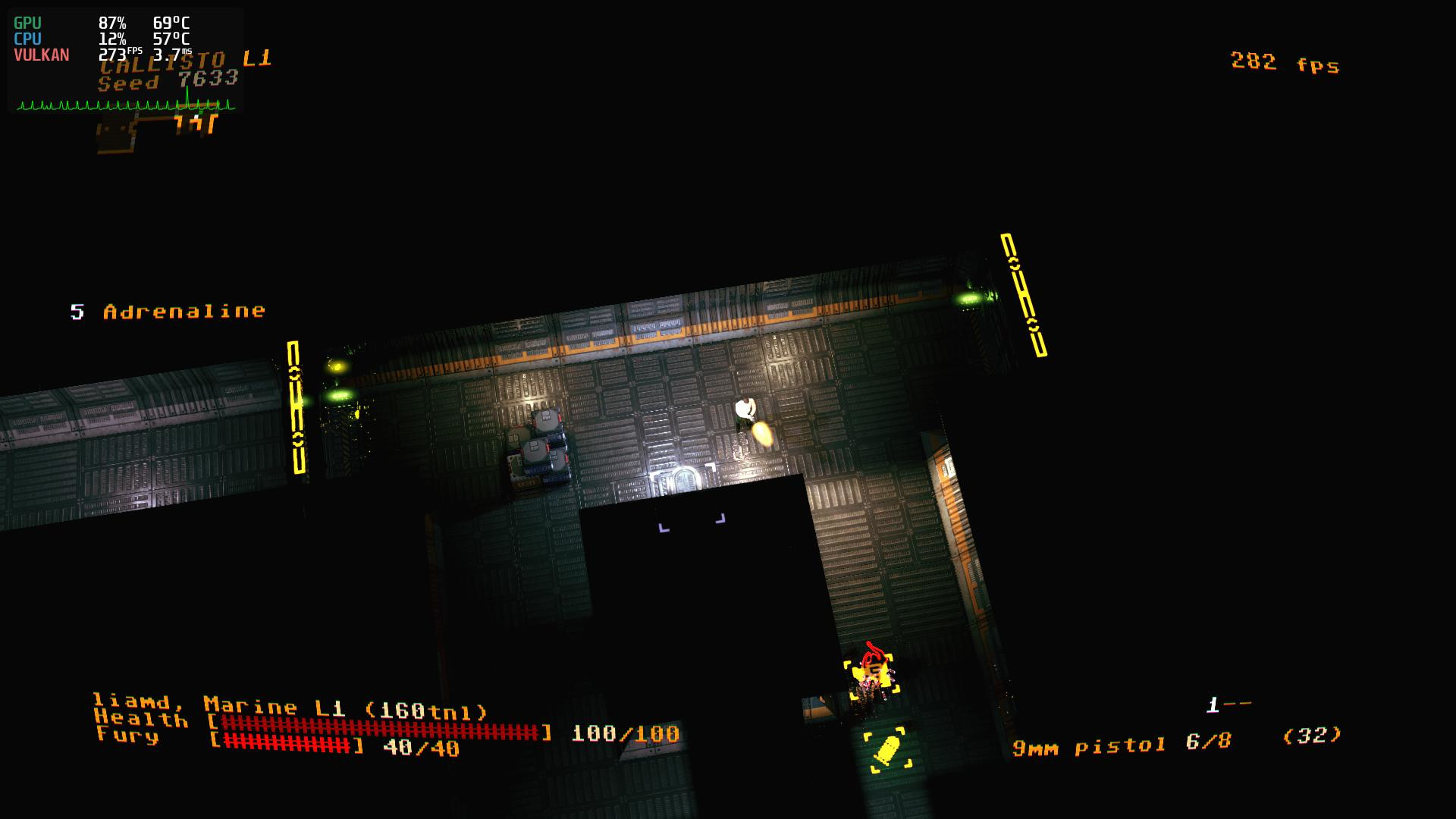 Pictured: MangoHud (top left) with Jupiter Hell on my Manjaro/NVIDIA system.
Pictured: MangoHud (top left) with Jupiter Hell on my Manjaro/NVIDIA system.
It also has logging capabilities, so it can be useful for some benchmarking too. Allowing you to start and stop the logging with the tap of a button to record things like FPS, CPU & GPU utilization. I can see all sorts of uses for a handy open source project like this.
What I also appreciate is how easy it is to use. Once installed, all you have to do is add this as a launch option for a game on Steam for example:
MANGOHUD=1 %command%
Impressive stuff, I was looking for something exactly like this not long ago and came up completely short. Will definitely be keeping an eye on this.
You can find MangoHud on GitHub.
Quoting: GuestI may be mistaken, but i think binary blobs are not officially part of ubuntu, so the blame's on nvidia.Nope. nVidia updates its drivers frequently enough.
The fact that Canonical thinks it is OK to not provide adequate drivers to 60% of the userbase has nothing to do with nVidia. Besides, there is always "Linux Mint", fixing this little issue. :)
Quoting: RedfaceMesa is not "frozen in stone" for the current LTS release, it gets SRU (Stable Release Updates, see https://wiki.ubuntu.com/StableReleaseUpdates) 18.04 and 19.10 have now Mesa 19.2.8 released in December 2019 https://packages.ubuntu.com/source/bionic-updates/mesa and https://changelogs.ubuntu.com/changelogs/pool/main/m/mesa/mesa_19.2.8-0ubuntu0~18.04.1/changelogHm, it seems that is true. So, at least Mesa is not completely stuck. This leaves the question about frequency of updates, however.
Quoting: RedfacePPA is short for Personal Package Archive https://en.wikipedia.org/wiki/Ubuntu#Package_ArchivesOh, excuse me. Maybe I've used the wrong term. "Unnecessary Multiplication of Instances" would be more fitting. Here at Fedora we do not call 3rd-party repositories like "RPM Fusion" some fancy names (and I believe, SUSE branch don't do it either). Even "Debian GNU/Linux" doesn't do that! So "PPA" is strictly Ubuntu-specific.
What is NIH about having a mechanism to "Using a Personal Package Archive (PPA), you can distribute software and updates directly to Ubuntu users. Create your source package, upload it and Launchpad will build binaries and then host them in your own apt repository. " from https://help.launchpad.net/Packaging/PPA?action=show&redirect=PPA
Quoting: RedfaceRestricting users to only get offcial packages would be more like "NIH"Now, that would be dumb, won't it? After all, if someone wants to install a 3rd-party application, she/he can just manually force-insert it into the system by simply copying the files into system directories and creating symlinks. Or by compiling from "tarballs". Preventing this will require complete stripping any administrative rights from users. I doubt many distros do it (maybe some government/army custom built super-secured ones do this, however).
Quoting: Alm888Nope. nVidia updates its drivers frequently enough.Mint does get its nvidia drivers straight from Ubuntu, from a Mint VM I have:
The fact that Canonical thinks it is OK to not provide adequate drivers to 60% of the userbase has nothing to do with nVidia. Besides, there is always "Linux Mint", fixing this little issue. :)
[ apt policy nvidia-driver-435
nvidia-driver-435:
Installed: (none)
Candidate: 435.21-0ubuntu0.18.04.2
Version table:
435.21-0ubuntu0.18.04.2 500
500 http://archive.ubuntu.com/ubuntu bionic-updates/restricted amd64 PackagesUbuntu, and thus also mint has currently ,besides some legacy drivers like 390 and older, 430 and 435, and 440 is in proposed now coming into normal updates in a couple of days if the testing goes ok.
So most users do not need a PPA for nvidia drivers, unless they have a very recent GPU or want some new features straight away.
Quoting: Alm888Hm, it seems that is true. So, at least Mesa is not completely stuck. This leaves the question about frequency of updates, however.Check the changelog I provided.
Quoting: Alm888Here at Fedora we do not call 3rd-party repositories like "RPM Fusion" some fancy names (and I believe, SUSE branch don't do it either). Even "Debian GNU/Linux" doesn't do that! So "PPA" is strictly Ubuntu-specific.So PPA is a fancy name and RPM Fusion is not :wink:
Yes PPA is a Ubuntu and derivates specific term, which also was mentioned in the wiki page I linked.
Anyone who regularly flips between Linux and Windows will fully understand the serious limitations of Linux desktop back-ends and drivers.
I was using Arch Plasma5 setup last week for a good 6months, back on windows10 (had to reinstall the stupid thing due to broken MS update) and its quite clear how far ahead windows still is for a general gamer ease of use.
I'm only using windows10 for testing and some Bethesda gaming, both of which I can get running under Linux but with no freesync (via gsync, due to flickers), and a 30% performance hit which is a KILLER at 4k.
Also there is a significant disk access penalty but that COULD be related to using NTFS under Linux (I have it configured the best I can). But I suspect the disk access performance issue is also related to WINE(via proton) somewhat.
Hate me all you want, I HATE Microsoft and Windows, but can't deny the fact they have gaming Desktop with ALL the bells and whistles down packed damn well. (minus their terrible semi-forced update system and how it sometimes can brick your install.....lol)
Last edited by Gerarderloper on 6 Feb 2020 at 12:11 am UTC
Last edited by Shmerl on 6 Feb 2020 at 5:10 am UTC
Quoting: Alm888Here at Fedora we do not call 3rd-party repositories like "RPM Fusion" some fancy namesWell, we do have "Cool Other Package Repo"
https://fedoraproject.org/wiki/Category:Copr
Quoting: TheRiddickwindows AMD driver is in somewhat bad shapeJust got a new Windows box at work; the damn AMD drivers do a hard reset whenever I use Flash (unfortunately, there are some websites that still require it, even though the browsers are doing everything they can to make it hard to use it). The boss had issues with webcam software, so he changed his for an Nvidia card - I might be next, if I can't find a stable driver version.
Quoting: TheRiddickAlso there is a significant disk access penalty but that COULD be related to using NTFS under LinuxBad move, NTFS is total garbage compared to every Linux-native file system. Just look at any of the I/O benchmarks on Phoronix (Windows native vs Linux native).
Quoting: ShmerlWindows users are more lost than Linux ones.I think that would be in rather niche situations however. Linux has the advantage of lots of open source drivers and hack in patches yourself, unless your stuck with nvidia drivers, pretty much a dictatorship there.
Quoting: PhlebiacBad move, NTFS is total garbage compared to every Linux-native file system. Just look at any of the I/O benchmarks on Phoronix (Windows native vs Linux native).Performance wise, NTFS is pretty damn fast under windows, its just under Linux where its still pretty terrible (but functions). You might get 1/6th the performance with NTFS under Linux vs Windows.
I use it for cross-platform testing, but am considering moving to EXT4 and just using a paragon license. AND NO I REFUSE to use BTRFS, its amazingly slow, as proven continuously with benchmarks and comparisons! Until someone can FIX btrfs to not be slow pos fs, I aren't using it!
Last edited by Gerarderloper on 6 Feb 2020 at 7:05 am UTC
Quoting: PhlebiacNah. That's server-side infrastructure for creating/maintaining repositories. From user's perspective it is still enabled via ordinary "/etc/yum.repos.d/*.repo" config files.Quoting: Alm888Here at Fedora we do not call 3rd-party repositories like "RPM Fusion" some fancy namesWell, we do have "Cool Other Package Repo"
https://fedoraproject.org/wiki/Category:Copr
Quoting: TheRiddickPerformance wise, NTFS is pretty damn fast under windowsDefinitely not my experience, but for general desktop use / gaming I guess it's fine.
Quoting: TheRiddickconsidering moving to EXT4 and just using a paragon license.I've been hoping Phoronix would do some benchmarks (even asked once), but he never has.
Quoting: TheRiddickAND NO I REFUSE to use BTRFS, its amazingly slow, as proven continuously with benchmarks and comparisons!:D
[https://aur.archlinux.org/packages/mangohud](https://aur.archlinux.org/packages/mangohud)
Quoting: PhlebiacI've been hoping Phoronix would do some benchmarks (even asked once), but he never has.There are benchmarks comparing NTFS EXT4 BTRFS XFS on phoronix site. There may be some windows10 based benchmarks but I can't recall.
Nice work! =)
Quoting: Alm888Same as PPAs are config files under /etc/apt/sources.list.d on Ubuntu, and a key added just like with Copr. Does it bother you that there are graphical and commandline frontends for it so that users do not have to know about the config files?Quoting: PhlebiacNah. That's server-side infrastructure for creating/maintaining repositories. From user's perspective it is still enabled via ordinary "/etc/yum.repos.d/*.repo" config files.Quoting: Alm888Here at Fedora we do not call 3rd-party repositories like "RPM Fusion" some fancy namesWell, we do have "Cool Other Package Repo"
https://fedoraproject.org/wiki/Category:Copr
Reading through https://fedoraproject.org/wiki/Category:Copr and https://help.launchpad.net/Packaging/PPA?action=show&redirect=PPA it is really the same concept just implemented differently off course.
Quoting: hammadnadeemxHow to enable this with lutris for other non steam games ?If you got it installed system wide, it should be as simple as adding the environment variable under system options tab as
MANGOHUD 1
It doesn't seem to work for me at all. I'm reluctant to open an issue on the GitHub repo because I'm curious if other people are having issues with it first.
The install instructions on the readme don't work and installing it via the release file doesn't appear to do anything.
Can folks confirm that it is working and maybe provide some screenshots?
Quoting: egeeHave people actually used this or are people talking about how cool it is and then moving on?The article screenshot is literally me using it. Download, extract, cd into the folder, install, done. Then add it as a launch option for a Vulkan game or DXVK. Works great for me.
It doesn't seem to work for me at all. I'm reluctant to open an issue on the GitHub repo because I'm curious if other people are having issues with it first.
The install instructions on the readme don't work and installing it via the release file doesn't appear to do anything.
Can folks confirm that it is working and maybe provide some screenshots?
Quoting: egeeHave people actually used this or are people talking about how cool it is and then moving on?No.. It does work & really well. I have it installed system wide on my Arch setup
It doesn't seem to work for me at all. I'm reluctant to open an issue on the GitHub repo because I'm curious if other people are having issues with it first.
The install instructions on the readme don't work and installing it via the release file doesn't appear to do anything.
Can folks confirm that it is working and maybe provide some screenshots?
[Grim Dawn + mangohud](https://drive.google.com/file/d/1Mk2wVU3vzKm60DvWv08HKnIDEzS5uoo5/view)
[Prey + mangohud](https://drive.google.com/file/d/14m8co1PsnlLIjng2jZgVyTZWpjArQD2a/view)
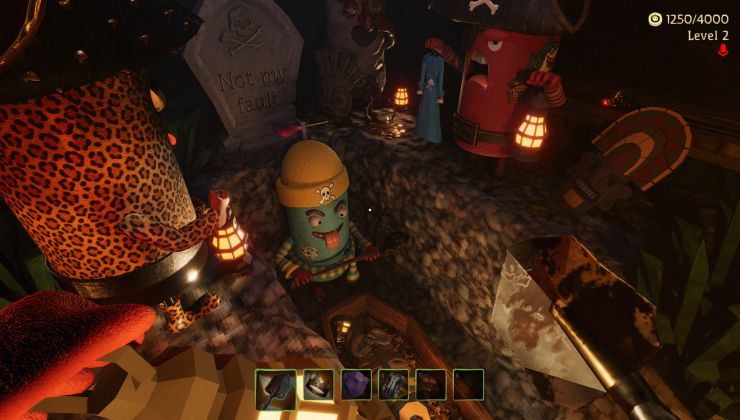
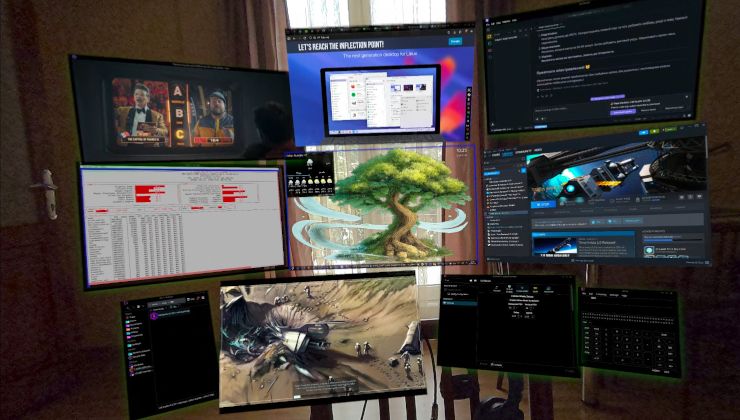
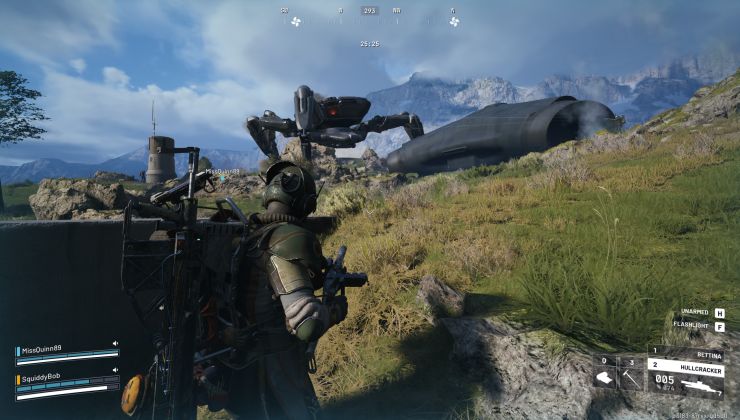
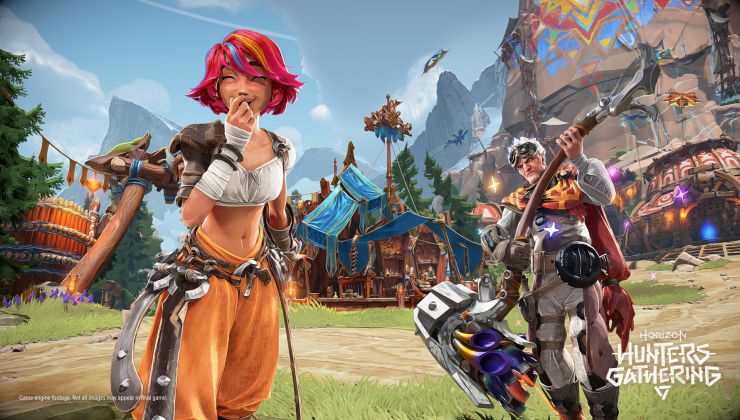








 How to setup OpenMW for modern Morrowind on Linux / SteamOS and Steam Deck
How to setup OpenMW for modern Morrowind on Linux / SteamOS and Steam Deck How to install Hollow Knight: Silksong mods on Linux, SteamOS and Steam Deck
How to install Hollow Knight: Silksong mods on Linux, SteamOS and Steam Deck